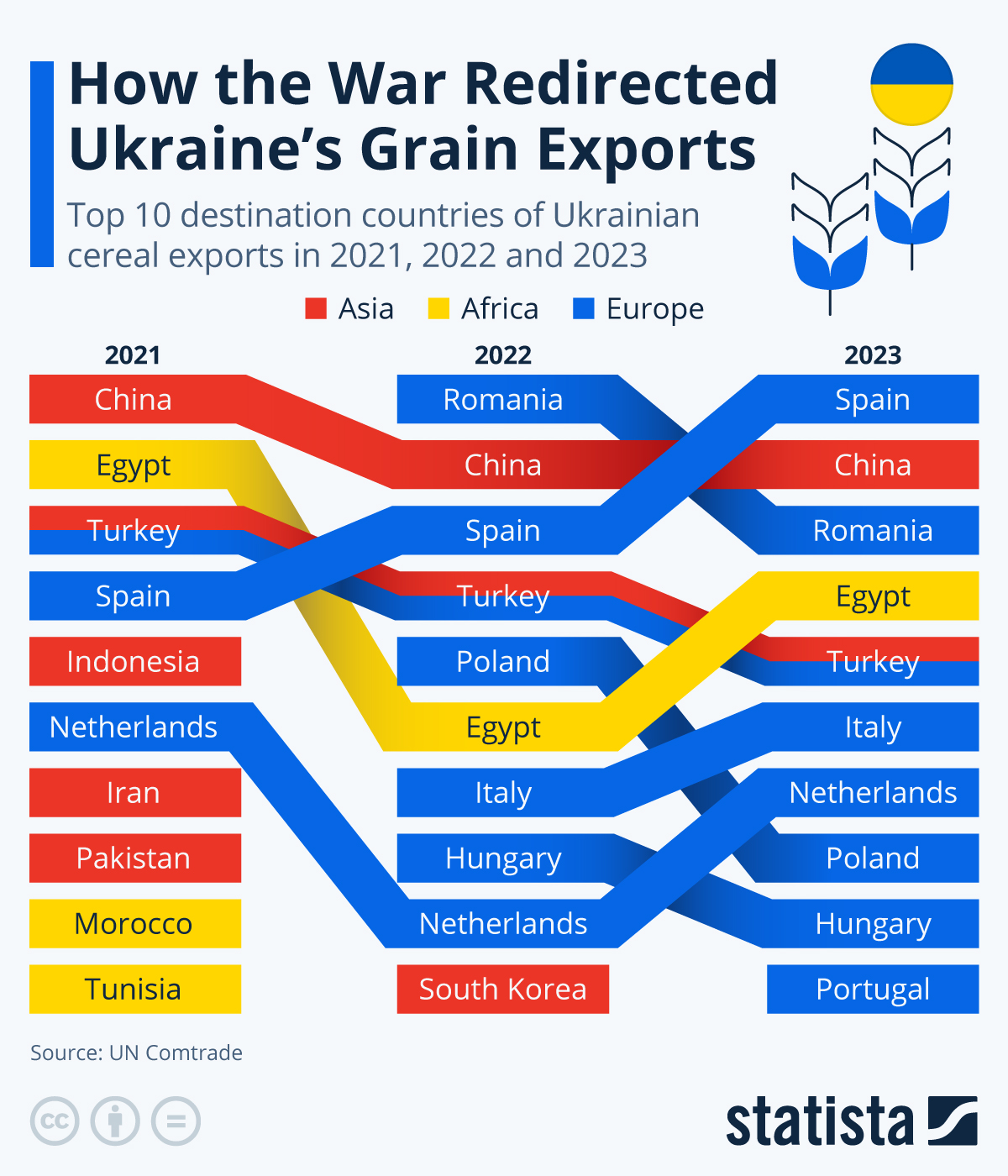Russia’s invasion of Ukraine and the temporary blockage of its Black Sea ports have redirected the flow of grain from "the world's breadbasket".
One of the world’s leading producers of wheat, corn and vegetable oils, Ukraine shipped much of its grain internationally prior to the war, with seven of the 10 most important destination markets for Ukrainian grain exports in 2021 located in Asia and North Africa (eight when including Turkey). When the war suddenly stopped the flow of Ukrainian grain, food commodity prices surged to unprecedented levels amid fears of a global food shortage.
After five months of war, the United Nations brokered a deal between Ukraine, Russia and Turkey that allowed the resumption of Ukrainian grain exports via the Black Sea route. The Black Sea Grain Initiative was signed into force on July 22, 2022 and Ukraine's grain exports quickly recovered to pre-invasion levels. Even after the end of the grain deal in July 2023, when Russia refused to renew it, Ukraine and its partners found alternative ways (and routes) to keep the grain flowing.
As Statista's Felix Richter highlights in the chart below, aside from exporting cereal by land via its neighboring countries, Ukraine continued to export grain via an alternative Black Sea route. By staying close to the border of friendly states Bulgaria and Romania, the potential for Russian disruptions was successfully minimized.
You will find more infographics at Statista
According to data from the UN Comtrade database, much of Ukraine’s grain exports ended up in Europe last year, with Romania, Poland and Hungary seeing particularly large increases in inflows of grain from their embattled neighbor.
Meanwhile, Indonesia, Iran, Pakistan, Morocco and Tunisia all dropped out of the top 10, as the war forced them to find alternative suppliers of the vital food commodity.



No comments:
Post a Comment